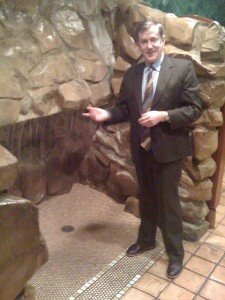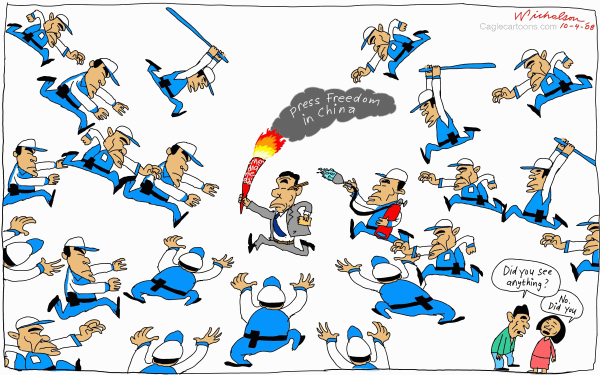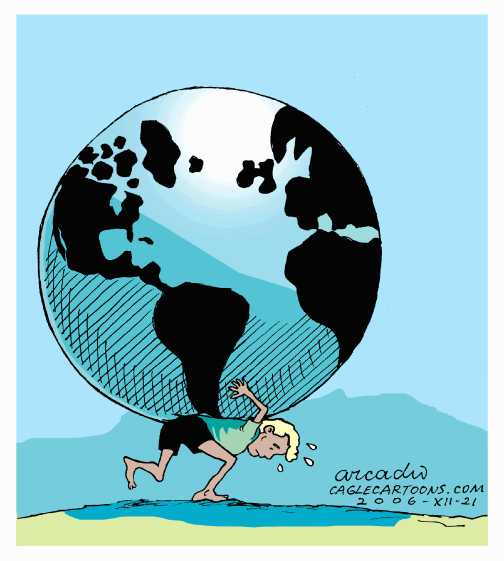Trans-America
To say that returning to the U.S. after three years in China has been culturally disorienting would be euphemistic. Shel Israel is touring the Great Wall celebrating his awe and acquired insights via his blog and Twitter, and Robert Scoble is in Shanghai flashing packaged chicken feet in front of Fast Company cameras. Like them, I am trying to make sense of a new landscape. America is a bit foreign to me now as I travel the western U.S..
Cal Poly Business School
I was present in San Luis Obispo when the horns began to honk and cheers went up in all directions as Barack Obama became President Elect Obama. It reminded me of the day Hawaii became a State and they let us out of school amid a great and historic celebration; I passed through San Francisco and visited a lawyer friend turned spiritual and inspirational entrepreneur (they are not contradictions)–who now lives in a monastery–when I heard frightening, violent words hurled from cars, Kristallnacht-like verbal stones, aimed at gay pedestrians in a bizarre celebration of the passage of a ballot Proposition banning Gay marriage in California.
I passed dozens of buildings vacated or marked “For Lease” in the city and on the outskirts of several better heeled cities I saw at least nine new prisons with oxymoronic names like “Pleasant Valley Prison” or soft-sell monikers like “Men’s Colony.” Local communities seem desensitized to penal “engines of inequality” where blacks and non-violent drug offenders are incarcerated instead of treated and rehabilitated (As an aside: VP Elect Biden has been instrumental in legislation to help repair the situation) and appear happy to have a new source of jobs in or near their already affluent communities. And then I spoke to curious, bright business students at Cal Poly for whom Professor and Associate Dean Chris Carr has helped create a soon enviable program that aims to inspire entrepreneurs and new venture champions in spite of the recent economic downturn.
I have reeled at the price of “cheap” food, been overwhelmed by the size of portions and left from restaurants feeling guilty for wasting so much of what was served to me. I have been unnerved by the quiet and open spaces so prevalent here and concomitantly heartened by the abundance of alternative energy initiatives and blue sky I wish again for China…
California Wind Turbines
(Taken with my i-Phone so…)
It has been a meditative, disheartening, inspiring and enlightening journey for me. I came here to get much needed medical care from a system broken and in need of fixing, but still far superior to anything available in China. I stopped along the way to teach MBA students what I could about China and to give them insight/tools that might help them personally or professionally upon graduation. And as always, it has been me who has learned the most. This trip has fostered in me a greater “attitude of gratitude”: I hale from the greatest country on earth and feel even prouder of my home now that the election is decided. I live in an extraordinary place. I love my adopted home of China and am looking forward to my return…There are problems, but hope and promise in both places.
Oh, to attempt to escape from being too soporific or pedantic i will share one of my favorite photos of the trip. It was taken by a visitor from Spain who also waned me, in the middle of the men’s room, to shoot him in front of a very kitsch urinal. Say what you will about Chinese bathrooms and the holes in the floors (which they think more sanitary than placing your bum on a previously occupied seat), but this Niagara style waterfall warranted a photo:

Potty Humor?




